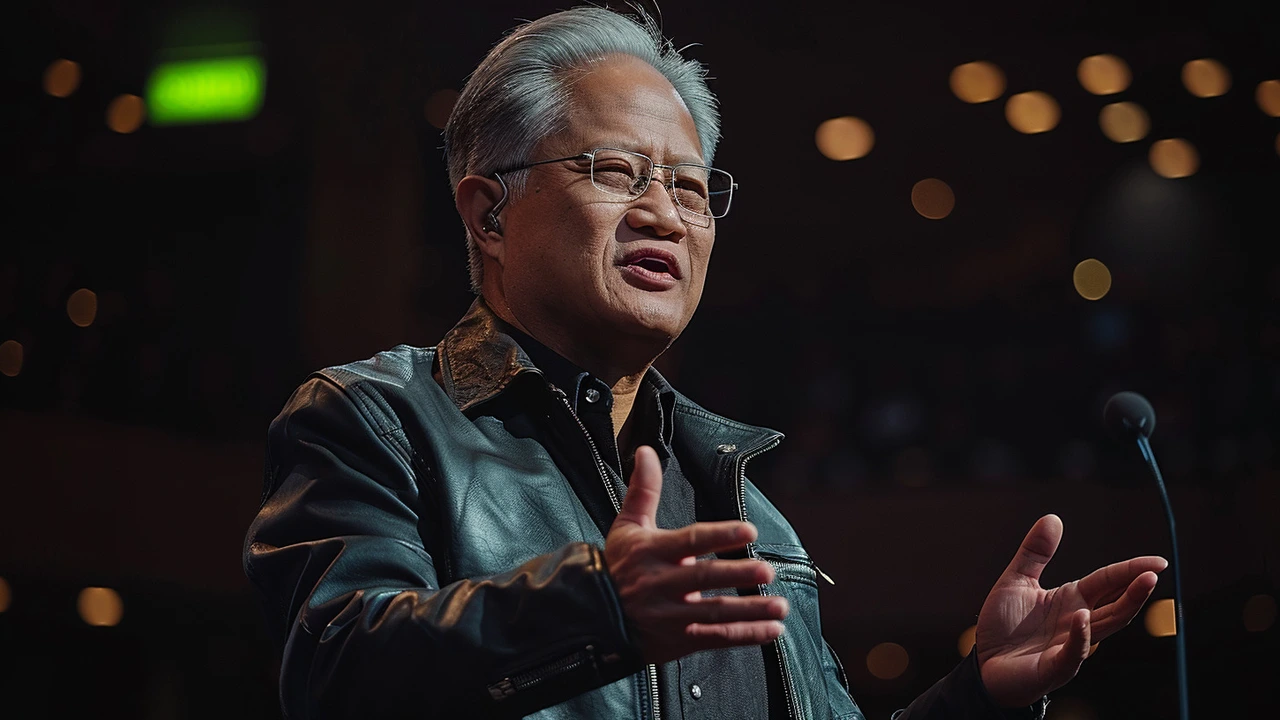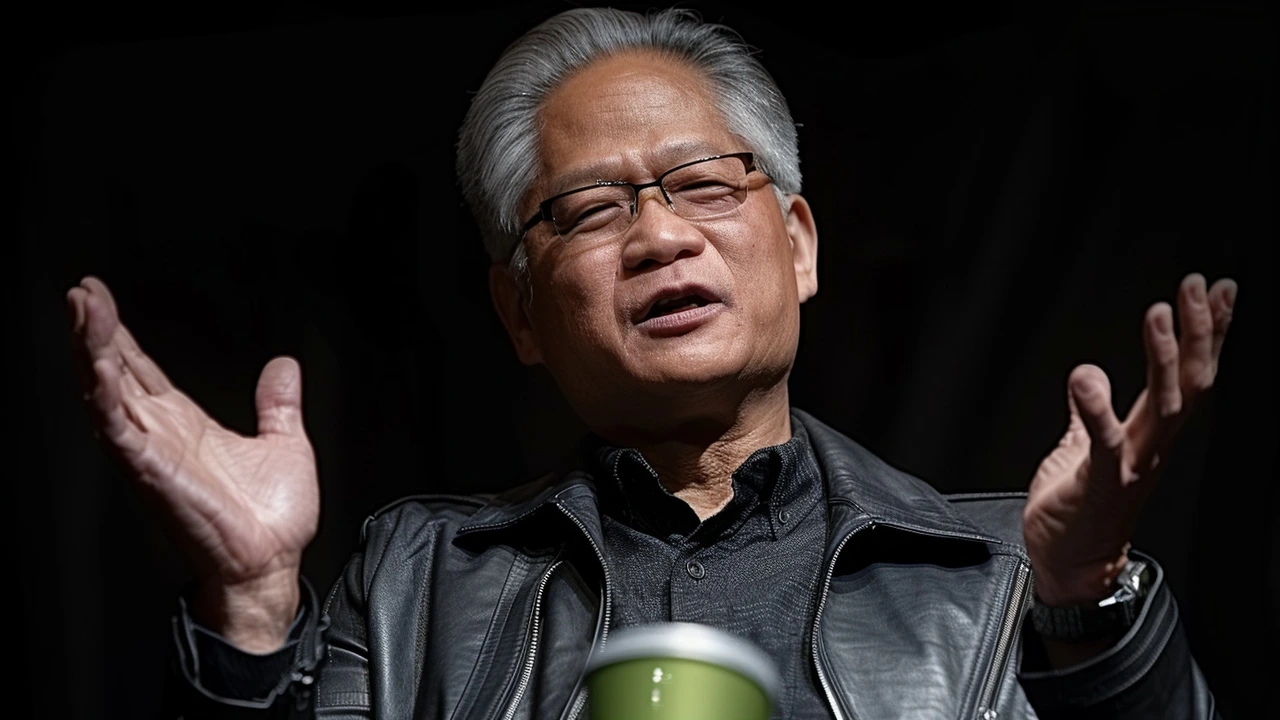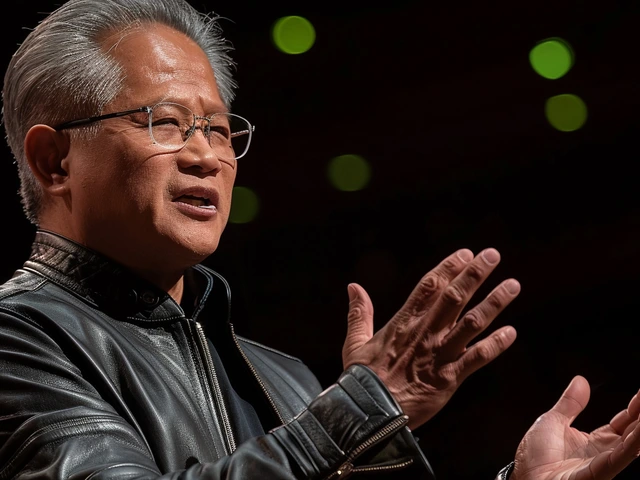Nvidia's Meteoric Rise: A Game Changer in the Tech World
In a groundbreaking turn of events, Nvidia, the American technology behemoth, has ascended to new heights, surpassing all of its industry peers to become the world's most valuable company. The climax of this incredible journey unfolded on Tuesday, when Nvidia's stock closed at an impressive $136 per share, marking a 3.5% increase. This surge propelled Nvidia's market capitalization past that of Microsoft, solidifying its position at the apex of the tech hierarchy.
Earlier in the month, Nvidia had already achieved a significant milestone by outpacing Apple's valuation. Historically, these two giants have been formidable contenders, often wrestling for the top spot in the market. The recent developments underscore the dynamic nature of the tech industry and highlight Nvidia's growing influence.
The Driving Force Behind Nvidia's Success
Nvidia's rapid ascendance is deeply rooted in its specialization in manufacturing computer chips that are indispensable for artificial intelligence (AI) software. In a world increasingly reliant on AI technologies, Nvidia's products have become the backbone of numerous applications, from autonomous vehicles to advanced data analytics.
Over the past few years, the demand for AI-driven solutions has skyrocketed, paving the way for Nvidia to experience unprecedented growth in both sales and profits. This demand has not only bolstered Nvidia's financial performance but has also instilled a high degree of investor confidence. The anticipation surrounding Nvidia's earnings potential has played a pivotal role in the meteoric rise of its stock price.

Investor Confidence and Market Valuation
The surge in Nvidia’s stock price on Tuesday catapulted its market value to a staggering $3.34 trillion (£2.63tn), nearly doubling its worth since the beginning of the year. This is a monumental leap, especially when one reflects on the company's humble position a decade ago, when its stock was valued at a fraction of its current worth.
The realm of AI development is fiercely competitive, with tech giants such as Microsoft, Alphabet (Google's parent company), Meta (formerly Facebook), and Apple all vying for supremacy. Despite such intense competition, Nvidia's stronghold in the AI chip sector places it in an enviable position. As the sector continues to expand, Nvidia appears well-equipped to maintain and even extend its dominance.
Analyst Perspectives
Industry analysts have been vocal about Nvidia's stellar performance. In May, Ben Barringer, a renowned technology analyst at Quilter Cheviot, shared his insights following the release of Nvidia's latest financial results. He emphasized that Nvidia had 'once again cleared a very high hurdle' and noted that the demand for Nvidia's products 'shows no signs of switching off.' Such statements underscore the broader sentiment within the investment community that Nvidia's trajectory remains on an upward trend.
However, optimism is not universal. Barclays credit analyst Sandeep Gupta has voiced concerns regarding Nvidia's ability to sustain its sizable market share amidst escalating competition. Gupta also raised pertinent questions about how Nvidia's clientele would monetize their AI software investments. These concerns highlight the potential challenges that lie ahead for Nvidia, even as it continues to bask in its current glory.

The Competitive Landscape
To understand Nvidia's position better, one must delve into the competitive dynamics of the tech industry. As AI technology becomes more pervasive, the demand for sophisticated AI chips is expected to surge. This burgeoning market has attracted significant interest from established tech giants and emerging players alike. Companies are investing heavily in research and development to produce cutting-edge AI solutions, hoping to carve out a substantial share of this lucrative market.
Nvidia's competitors, including Microsoft, Alphabet, Meta, and Apple, are formidable adversaries with vast resources at their disposal. Each of these companies brings unique capabilities and strategies to the table, intensifying the competitive landscape. For instance, Microsoft's Azure platform has made significant strides in integrating AI capabilities, while Alphabet continues to enhance its AI-driven services across its product ecosystem. Meta's rebranding as an AI-first company and Apple's continued innovation in AI-assisted hardware further underscore the competitive threats Nvidia faces.
Navigating Challenges and Seizing Opportunities
As Nvidia navigates this fiercely competitive environment, it must constantly innovate to stay ahead. The company has a strong track record of developing advanced technologies that meet the evolving needs of its customers. Continued investment in research and development will be crucial for maintaining its technological edge and market leadership.
Additionally, Nvidia's strategic partnerships and acquisitions play a vital role in its growth strategy. Collaborations with leading tech firms, academic institutions, and industry consortia enable Nvidia to stay at the forefront of AI advancements and expand its market reach. Strategic acquisitions of complementary businesses also bolster Nvidia's capabilities and provide new avenues for growth.

Future Prospects: Balancing Risks and Rewards
Looking ahead, Nvidia's future appears promising, albeit with certain challenges. The AI chip market is poised for exponential growth, driven by increasing adoption across various sectors, including healthcare, finance, automotive, and entertainment. As more industries recognize the transformative potential of AI, the demand for Nvidia's high-performance chips is expected to soar.
However, Nvidia must remain vigilant in addressing potential risks. Intellectual property disputes, regulatory challenges, supply chain disruptions, and technological obsolescence are among the factors that could impact Nvidia's growth trajectory. The company needs to proactively manage these risks and adapt its strategies to evolving market dynamics.
Conclusion
Nvidia's journey to becoming the world's most valuable company is a testament to its relentless pursuit of innovation and excellence in the AI chip market. With its cutting-edge technologies, robust market presence, and strategic vision, Nvidia is poised to shape the future of AI. While competition is fierce and challenges persist, the company's ability to navigate these complexities will determine its long-term success. As investors remain optimistic and Nvidia continues to push the boundaries of AI, the tech world watches with bated breath to see what the future holds for this industry titan.
The Road Ahead
As Nvidia stands at the pinnacle of the tech world, the road ahead holds both promise and uncertainty. The evolving landscape of AI technology presents limitless opportunities for growth and innovation. However, success will require a careful balance of strategic decision-making, agility in responding to market shifts, and a steadfast commitment to delivering value to customers and stakeholders.
Nvidia's achievements thus far provide a solid foundation for future growth. By staying true to its core values of innovation, quality, and customer focus, Nvidia can continue to lead the way in the AI revolution and create lasting value for its shareholders. The journey has only just begun, and the world eagerly awaits the next chapter in Nvidia's remarkable story.



16 Comments
Write a comment